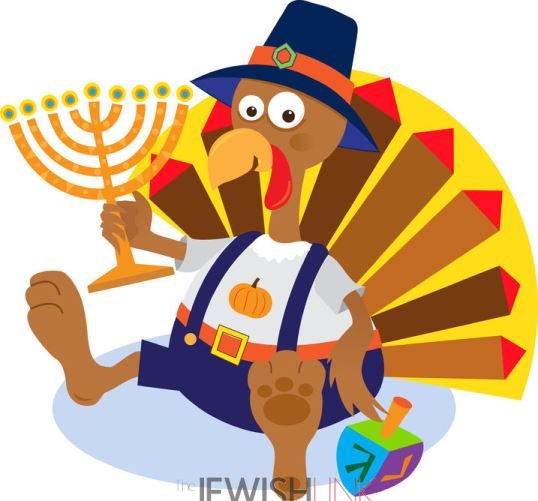
Does cranberry applesauce go with turkey latkes? Should we try for two family gatherings or just one? The anticipated convergence of Chanukah and Thanksgiving this year has yielded an early bumper crop of commentary, as well as a flurry of fretful clucking over schedule conflicts and contented purring over culinary opportunities.
But is the timing just a chic calendrical coincidence—the last time this happened was in 1888—or does it bring any meat to the table?
Jewish tradition—and the belief in specific Divine Providence as taught by the Baal Shem Tov—teaches us that we can learn something from every encounter in life. Certainly when it pertains to a holiday we should be able to carve out a growth-spurring message without ruffling too many feathers.
There are two basic elements to the Chanukah story:
First, how small band of Jewish warriors triumphed against the mighty armies of their Syrian-Greek oppressors, bringing back to the Jewish people the freedom to worship freely. This was a miracle, of course, but not one that defied nature. An insistent atheist could credit their clawing out a victory to phenomenal daring, deftness, and determination.
To commemorate this miracle, the sages composed special words of gratitude to be added into the daily prayers throughout Chanukah. This part of Chanukah dovetails with the initial backdrop of Thanksgiving—the relief and thanks for being free to worship—and the blessing that is America.
The second element of Chanukah is how the Maccabees found one small uncontaminated cruse of oil that then burned for eight nights instead of one. This was a miracle that had no natural explanation; G-d’s love and interaction were obvious to all.
To commemorate this miracle, we recite the hallel praise daily and light candles or oil lamps for eight nights, starting with one on the first night—this year beginning on the night before Thanksgiving—and adding one each night until we have eight on the last night.
This second miracle seems to be pure gravy. What did it accomplish?
Like all miracles, it established a pecking order.
Nature doesn’t puff out its chest and strut around in full display saying, “Look at me. I am proof that G-d rules the roost.” If it did that, it would be running afoul of freedom of choice.
But a miracle does just that. A miracle is like a banner hung from the rafters that is meant to catch our attention and show us clearly “the hand of G-d.”
Its long term purpose? To illuminate our perspective and remind us that even the simple ordinary drumbeat of life is miraculous and comes from G-d.
Nature is really just a pullulating series of buried miracles.
Chanukah, then, reminds us not to take our lives for granted but to acknowledge and thank the Creator of all beings for the bounty He has bestowed upon us.
Sound familiar?
***
Thanksgiving in the daily Jewish prayer upon awakening goes like this: I offer thanks to You, living and eternal King, for You have mercifully restored my soul within me; Your faithfulness is great. Modify it as you choose, but keep it frequent.
by Rabbi Zalman Aaron Kantor